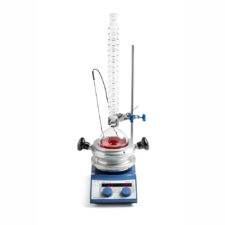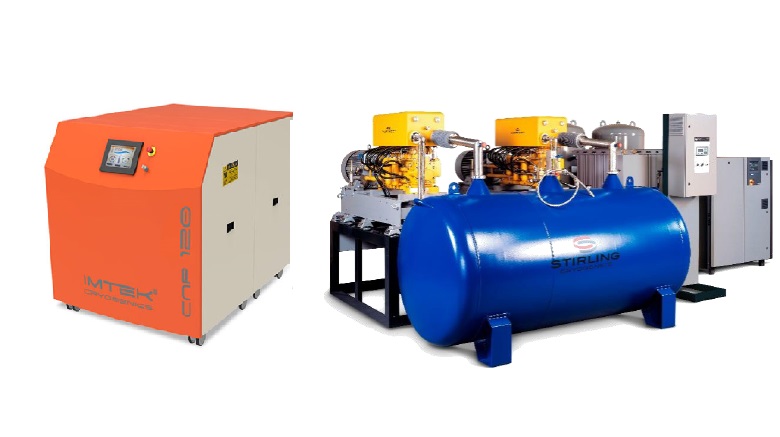Global sustainable laboratory equipment visionaries, Asynt, have collaborated with Kingston University (London, UK) and renowned worldwide chemical products supplier, Key Organics, to develop an accessible new synthetic compound library.
Chemists from the Wren Group at Kingston University (UK) have formed a collaborative relationship with these industry leaders, enabling them to create a novel synthetic compound library.
Video: Dr Stephen P Wren and PhD candidate, Nathan Long, from the Wren Group in the Kingston University laboratories with Asynt’s sustainable laboratory tools.
Chemists from the University, Dr Stephen P. Wren, Professor Adam Le Gresley and PhD candidate Nathan Long, have built an initial synthetic compound library which is comprised of 28 anilino and benzylamino monosquarate-amide squaric acid derivatives designed as bioisosteric replacements for the omnipresent carboxylic acid moiety.
These have been used to demonstrate the potential for the generation of additional novel compounds as compounds in this class can act as substrates in further chemical transformations. The compounds can be supplied in various formats to enrich worldwide drug discovery programs.

By partnering with leading industry experts Asynt and Key Organics to open the possibilities of their ideas and enable access to useful lab tools such as DrySyn oil-free heating blocks and CondenSyn waterless air condensers as well as high-quality chemical starting materials, the Wren Group are on a mission to promote accessible new chemistries with lower-cost synthetic compounds that are readily available for scientific research.
Published in the SynOpen Thieme Journal, the Wren Group’s recent paper clarifying their work explains more about how DrySyn and CondenSyn can improve conditions and reaction success as well as reduce environmental impact in your laboratory. Read more on the journal’s webpages.
Dr Wren made it clear that the partnership formed by the three organisations made the project possible. He goes on to explain that.. “we chose to work alongside Asynt and Key Organics because they are leading suppliers of parallel synthesis equipment and chemical building blocks respectively. The Asynt equipment was user-friendly and helped enable us to maximise our output, while our two-way exchange of chemicals with Key Organics was a joy to behold – I want to thank them both hugely for their input.”
Asynt is proud to have been involved in this innovative work and excited to see what’s next for the Wren Group.
For further information about the DrySyn oil-free heating blocks and CondenSyn waterless air condensers, please visit www.asynt.com/products/benchtop-synthesis-tools/. Alternatively, please contact Asynt by phone on +44 (0)1638 781709/email [email protected].
Further background information:
Key Organics is a leading provider of chemistry services and research compounds. We offer custom synthesis, FTE/contract synthesis, consultancy services, analytical chemistry, collaborative R&D, process R&D/scale-up and more. We have >300,000 compounds in our BIONET collection including intermediates, fragment libraries, biochemicals and screening compounds.
Kingston University is based in southwest London and is home to the RIBA Stirling Prize-winning Town House, which also carried off Europe’s top accolade for architecture – the EU Mies van der Rohe award. The University’s newly launched Town House Strategy reflects the ambition projected by the building and sets out a progressive model for higher education, founded on the University’s sector leading Future Skills campaign. Kingston University has been ranked top in the country for graduate start-ups in the latest Higher Education Business and Community Interaction survey. It is also widely acclaimed for its work boosting social mobility, ensuring graduates emerge from their degree programmes sought after for their knowledge, innovation and skills. Website: www.kingston.ac.uk
Download this PR in PDF format HERE.







